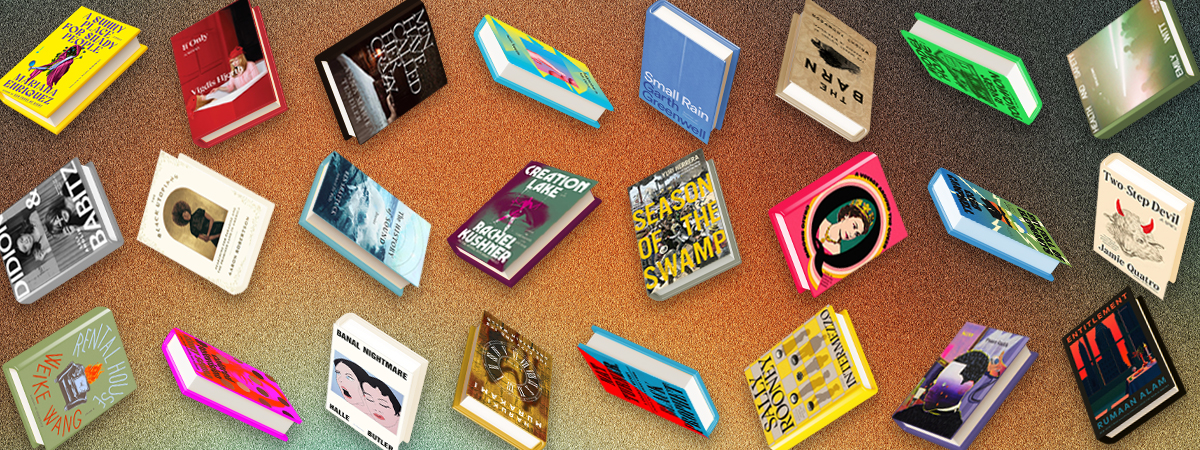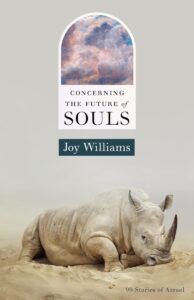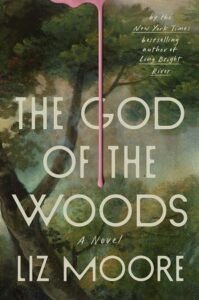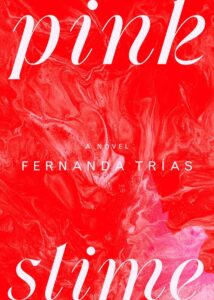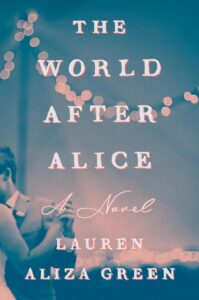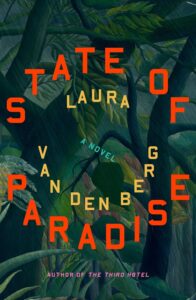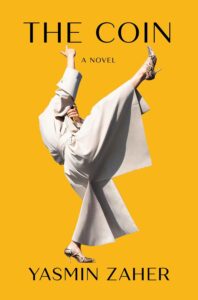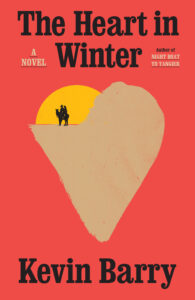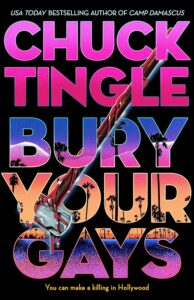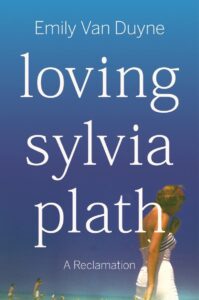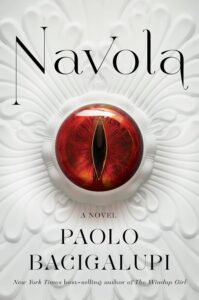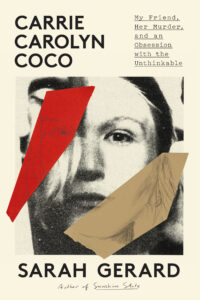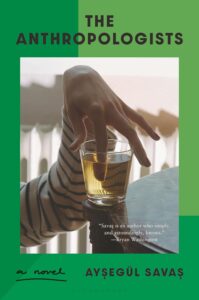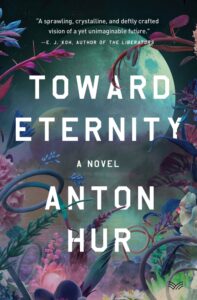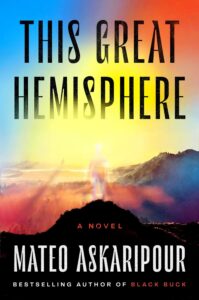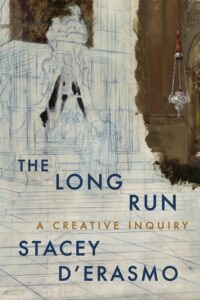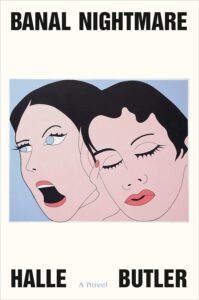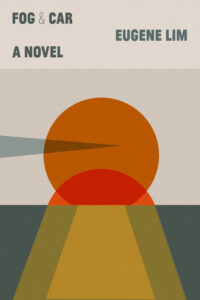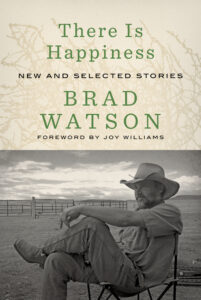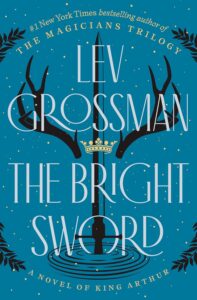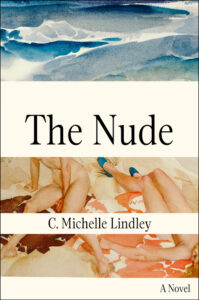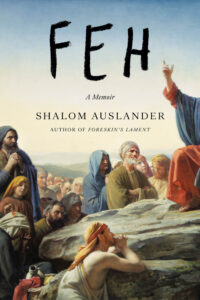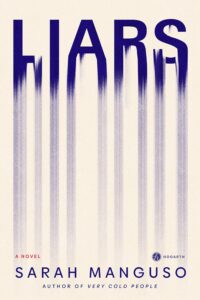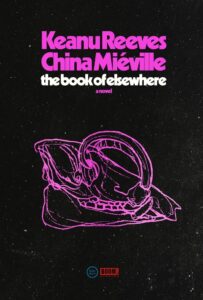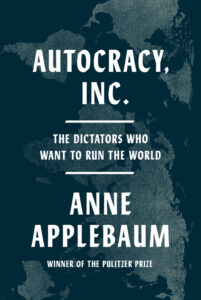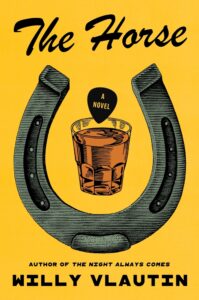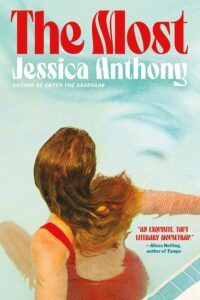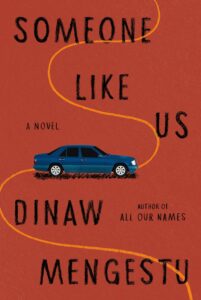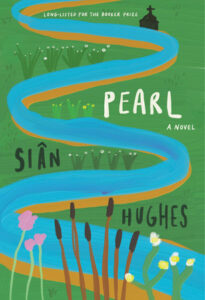Well, it’s been a pretty bad year so far, all things considered, with the strong potential to get worse. But as always, there’s a silver lining (of sorts): the books. Now that the year’s reading is half over, it’s time for an updated preview, so here are the books the Literary Hub staff is most looking forward to reading in the back half of 2024.
July
Joy Williams, Concerning the Future of Souls
Tin House, July 2
I was completely enthralled by the excerpt from this collection of short pieces that ran in the Spring Paris Review. The complete Concerning the Future of Souls contains 99 pieces about death, most of them following Azrael—the devoted angel that escorts souls to their judgment at God’s feet—and Satan, who spars with Azrael. Jung, Nietzsche, and Rilke appear, as do horses, butterflies, and tortoises, all united in the shared experience of mortality. Each piece is small, its own shining gem set into constellations with its neighbors. Williams is a beautiful and intelligent writer, and her short meditations are poetic, sad, and often quite funny too. –James Folta, contributing writer
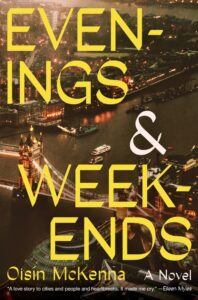
Oisín McKenna, Evenings and Weekends
Mariner, July 2
Irish spoken-word artist and playwright Oisín (pronounced “ush-een,” in case you’re curious) McKenna’s debut novel is a queer, multi-generational, polyphonic story set in London during a sweltering June weekend in 2019. It’s being billed as “Sally Rooney meets Torrey Peters,” which sounds pretty incredible, and just received this rave review in the Guardian: “For even as it utters a howl of rage at broken, late-capitalist Britain, Evenings and Weekends is a love letter to the city—the chance it offers to forge your own identity, and the interconnectedness of urban life.” –Dan Sheehan, Book Marks Editor in Chief
Liz Moore, The God of the Woods
Riverhead, July 2
Liz Moore’s Long Bright River was a spectacular pivot to crime for Liz Moore and her new one should cement her reputation. It’s a great summer read about missing children at a summer camp, with a tinge of “all of this has happened before” looming around the edges. Reading this felt like discovering Tana French’s In the Woods—and not just because of the “child disappeared in the woods” angle, but because it’s unputdownable and thrillingly constructed. –Drew Broussard, Podcasts Editor
Fernanda Trias, tr. Heather Cleary, Pink Slime
Scribner, July 2
As previously recommended: I have been waiting for this book since last summer’s Times write-up of the new wave of speculative fiction coming out of Latin America, and it doesn’t disappoint. This novel is being comped to the works of Samanta Schweblin and Mariana Enriquez—and while those are useful comparisons, particularly in the case of Schweblin’s Fever Dream—Pink Slime is very much its own beast, due to become a frequent comp title in its own right.
It’s set in a moment of ecological anxiety where a red algae bloom has created a ‘red wind’ off the sea that infects and kills most of the people exposed to it, where healthy/natural food is increasingly hard to come by and people eat processed meat paste instead. The narrator is struggling to adapt to this new world, trying her best to serve as a nanny for a constantly hungry boy and to take care of her stubborn mother and her dying ex-husband. Trías’s prose, in Heather Cleary’s terrific translation, pulls you in slowly until you find you can’t put the book down—like being locked in during a wind alarm, trying your best to keep your footing. I’ve already ordered Trías’s earlier novel The Rooftop from her UK publisher, because I’m that excited to read more. –DB
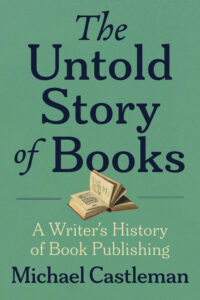
Michael Castleman, The Untold Story of Books
Unnamed Press, July 2
Here’s one that’s perfect for Lit Hub readers: Michael Castleman’s history of the book business takes a long view of the 600-year-old industry that produces and distributes the art we love. He divides his history of publishing into three distinct business models, each one overtaking and replacing the last: the post-Gutenberg era that led to the first mass-produced books; the 19th-century machine age with higher costs and more contracts; and the third and current age of tech disruption, wholesaling, and a return to self-publishing. Castleman’s history is approachable, and he deftly explains the macro of technological innovations and economic incentives, as well as the micro, with lots of fun tidbits and tangents. –JF
Emily Dunlay, Teddy
Harper, July 2
In this madcap tale of espionage and adventure, a Dallas debutante marries a foreign service worker and heads to mid-1960s Italy, determined to put her wild days behind her and finally Behave. Events conspire to foil her goals of proper deportment, and soon enough, she’s involved in a blackmail scheme, embassy hijinks, and the most daunting task of all: finding a couture dress that can fit her without needing to be tailored. Teddy is not just a fabulous historical novel—it’s a manifesto against the patriarchy, and a liberating experience of watching a woman free herself. –Molly Odintz, CrimeReads Managing Editor
Lauren Aliza Green, The World After Alice
Viking, July 2
As previously recommended: Lauren Green is a poet and a debut author (of Forbes 30 Under 30 fame) with a much-heralded title coming this July. The World After Alice is about the death of a girl named Alice and a wedding that takes place twelve years later. Alice’s brother, Benji, is marrying her best friend, Morgan, and the families must come together and confront their rocky and devastating past while attempting to celebrate and seek joy in the union. With betrayals and grief and secrets all threatening to interrupt the wedding weekend, The World After Alice is a juicy and emotional read that surprises as much as it entertains. –Julia Hass, contributing editor
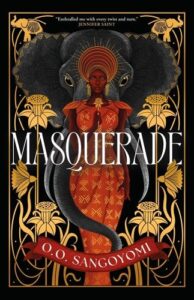
O.O Sangoyomi, Masquerade
Forge Books, July 2
Sangoyomi’s debut took me by wondrous surprise: I read this book in under 24 hours. Loosely riffing on the Persephone myth but set in pre-colonial Saharan Africa, it’s the story of a woman plucked from the edges of society (a single woman, working as a blacksmith: must be a witch!) to suddenly marry a warrior king. Perfectly plotted and featuring a main character worth dying for, Masquerade is a must-read for anybody who enjoys pre-colonial narratives, historical fiction, palace intrigue, epic romance. It’s an absolute stunner. —DB
Laura van den Berg, State of Paradise
FSG, July 9
As previously recommended: As I’m sure I’ve mentioned on this website before, I will go wherever Laura van den Berg and her eerie, uncanny imagination lead, even to the much-maligned sunshine state in storm season. State of Paradise, van den Berg’s third novel, is the story of a creatively unfulfilled ghost writer who returns—with her running-obsessed husband in tow—to the town where she grew up (and where she was briefly institutionalized a couple of decades previous).
There, in a post-pandemic central Florida, as the summer heat rises and her literary taskmasters’ demands become more opaque, very odd things begin to happen. Storms rage, people vanish, irises change color, snails gather en masse, and a virtual world called Mind’s Eye begins to supplant the real. But then, how can the narrator or her unravelling sister be certain that their reality is, well, real? And what knowledge is the famous thriller novelist who signs our protagonist’s paychecks hiding in his Floridian manse? A wry, surreal, lushly atmospheric metafictional mystery, I fell under the swampy spell of this novel from the get-go. –DS
Yasmin Zaher, The Coin
Catapult, July 9
As previously recommended: Yasmin Zaher’s The Coin is a novel of big ideas hiding in chic little packages—packages not unlike the Birkin bags that feature so heavily in the plot. In slick, clever chapters, we follow an unnamed Millennial woman around (initially) New York City. But if you feel you’ve heard this one before, you’d be wrong.
Our hero’s POV proves conspicuously strange, and her adventures surreal. A wealthy Palestinian—new in town, but recently orphaned—our narrator’s primed to observe the contradictions attending daily life in America. But as she fails to square those contradictions (poverty next to wealth, dirt next to beauty), she begins to disintegrate. Her vanity morphs into a cleanliness obsession. Her do-gooding instincts, sprouted in the soil of the “underprivileged boys” school where she teaches, go South. And the tragedy she’s been running from—which is, I think, a synecdoche for a global one—becomes impossible to avoid.
This is a sneakily profound book about material excess, the cost of ease, and all the broken promises an empire is built on. Yet it’s fun, even merry! The frosted-but-confident voice reminded me of Isa Epley, from Marlowe Granados’ Happy Hour. (“I’ve always been motivated by pleasure, never by money,” our narrator confides on the first page.) And Zaher’s relentless eye for modern details made me think of Halle Butler’s The New Me. –Brittany Allen, contributing writer
Kevin Barry, The Heart in Winter
Doubleday, July 9
As previously recommended: All the blurb that should be required for you to saddle up your horse and ride hard toward your nearest bookstore on July 9 is this: Kevin Barry does Deadwood. Barry’s signature linguistic brio is on full, glorious display in this rollicking tale of a young(ish) Irish immigrant—a melancholic, opium-smoking balladeer and occasional Cyrano-for-hire named Tom Rourke—in a Montana mining town in 1891 who begins a passionate affair with Polly Gillespie, the fiery new bride of dull-as-ditchwater captain Long Anthony Harrington. The lovestruck duo rob a safe, steal a horse, and light out for the territory, with Harrington’s psychotic man Jago in hot pursuit. Barry never disappoints, but this one is a pure pleasure. A thrilling, tumescent, poetically vulgar, big-hearted romp of a novel, where the fearless blending of vernaculars makes for a wholly unique and utterly electrifying reading experience. –DS
Chuck Tingle, Bury Your Gays
Tor Nightfire, July 9
As previously recommended: I loved Chuck Tingle’s traditional-publishing debut Camp Damascus (a terrific possession/demonology novel that managed to both terrify and uplift) and his Tinglers remain an absolute delight, but I’m going to go out on a limb and say that Bury Your Gays is his best work yet. It deserves to be the literary equivalent of a massive summer blockbuster, and I’m using that term specifically because it is set in Hollywood and written by somebody who gets it: the suits are going to drive us all off the cliff of increasingly crappy AI-driven stories that have zero humanity to them whatsoever, but we-the-artists (and we-the-audiences) can and must push back!
It also works as a total thrill-ride, following a screenwriter on the verge of his big moment (an Oscar nomination, critical and commercial success) only to discover that the suits want him to kill off the gay characters in his long-running series. When he declines, monsters from his horror movie days start appearing in real life and trying to kill him and his loved ones—coincidence? Outrageous publicity stunt? An over-the-top attempt to bring a rogue writer to heel? If you were on the picket lines last year, if original stories are important to you, if you too believe that love is real(!), then this one is for you—even if you don’t think you like horror, you’re gonna devour this. –DB
Emily Van Duyne, Loving Sylvia Plath: A Reclamation
W.W. Norton, July 9
As previously recommended: A “radical” new reading of Plath’s life and legacy from Plath scholar, superfan, and Literary Hub contributor Emily Van Duyne, which examines the many myths surrounding the poet before taking them apart, wiping off the grime, and reconstructing a new vision of Plath for the future. –ET
Paolo Bacigalupi, Navola
Knopf, July 9
As previously recommended: Paolo came up in YA and is set to release a wide-ranging fantasy about the families living in Navola, a city-state with a mysterious history. It’s a coming-of-age for Davico di Regulai who “will be expected to take the reins of power from his father and demonstrate his mastery of the games of Navolese diplomacy: knowing who to trust and who to doubt, and how to read what lies hidden behind a smile.” –Janet Manley, contributing writer
Sarah Gerard, Carrie Carolyn Coco
Zando, July 9
It’s hard to imagine how painful it must have been for Gerard (author of the essay collection Sunshine State and the novel True Love) to write this hybrid work of investigative journalism, grief memoir, and dissection of the true crime genre. Carrie Caroyln Coco is the story of Carolyn Bush, a twenty-five-year-old poet who was stabbed to death in her New York City apartment by her roommate in 2016, and of Gerard’s six-year quest to understand her friend’s singular life and brutal death. –DS
Ayşegül Savas, The Anthropologists
Bloomsbury, July 9
A couple searches for an apartment in a city foreign to both of them, imagining their possible futures as they go to viewings and negotiate their new world. Savaş is a master of moments of subtle power, and this one promises to be a gorgeous portrait of a relationship, with all its tenderness and bewilderment. –Jessie Gaynor, Senior Editor
Anton Hur, Toward Eternity
HarperVia, July 9
It would appear that National Book Award finalist Anton Hur is not just a brilliant translator (In 2022 Hur was nominated twice for the International Booker Prize for his translations of Bora Chung’s Cursed Bunny and Sang Young Park’s Love in the Big City), but a brilliant fiction writer as well. His debut novel, Toward Eternity—an Emily Dickenson-inspired existential sci-fi tale of “love, robots, and poetry” which Kirkus recently called “an unfailing affirmation of the persistence of love and art, even in the face of oblivion” has drawn comparisons to Kazuo Ishiguro’s Klara and the Sun, Emily St. John Mandel’s Sea of Tranquility, and Blade Runner. Sign me up. –DS
Ben Shattuck, The History of Sound
Viking, July 9
Twelve interwoven stories set in and around New England make up this debut collection by Ben Shattuck. Shattuck has created an unusual and inviting premise wherein each story has a companion piece: the sister story holds a previously untold reveal from the other, secrets and insights that keep the reader hooked and entranced. You may have heard of Shattuck’s collection, as the titular story has already been optioned for film rights: a queer love story between fan favorites, Paul Mescal and Josh O’Conner. This piece, “The History of Sound”, is a gentle, ruminative memory of a love long since past, a nostalgic remembrance of music and tenderness and finding solace in one another. It leads the collection with a jolt of emotion, and the ensuing pieces follow suit, taking the reader down a path of place and care and remembrances, transported and transfixed. –JH
Mateo Askaripour, This Great Hemisphere
Dutton, July 9
For his sophomore novel, the author of Black Buck has brought us a big, juicy speculative epic—part thriller, part mystery, part adventure, part SF yarn, part social satire, part allegory of colonialism. “I can’t help but to think that the spirit of the great prophet Octavia Butler hovers over This Great Hemisphere,” says Robert Jones, Jr. And well, I go where Octavia goes. –Emily Temple, Managing Editor
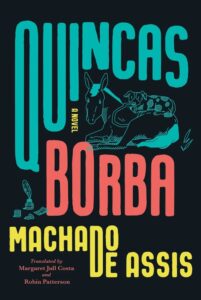
Joaquim Maria Machado de Assis, tr. Margaret Jull Coasta & Robin Patterson, Quincas Borba
Liveright, July 9
A new translation of Machado de Assis, one of South America’s most celebrated (and wonderfully bizarre) writers is excellent news. Jull Costa and Patterson’s excellent translation of The Posthumous Memoirs of Brás Cubas was playful, extremely funny, and deeply weird, so I’m looking forward to picking up this satire of wealth and progress (or perhaps “progress”?) in nineteenth century Brazil. –JG
Stacey D’Erasmo, The Long Run: A Creative Inquiry
Graywolf, July 9
For those of you who are creatively inclined it is not difficult to recall a time—in college, in your early twenties, perhaps—when you felt boldly energized by the idea (and practice) of making art, the feeling that you’d find the purpose of your life. And then jobs happened, and life, and it became harder and harder to return to that feeling… Facing her own questions about art-making and aging, writer Stacey D’Erasmo interviewed some truly brilliant—and old—artists about what has kept them going: from Merce Cunningham to Samuel R. Delany to Steve Earle to Taniá Leon the answers are as surprising and delightful as they are consistently similar. –Jonny Diamond, Editor in Chief
Jesse Katz, The Rent Collectors: Exploitation, Murder, and Redemption in Immigrant LA
Astra House, July 16
As previously recommended: Teenaged wannabe gangster Giovanni botches a hit, instead killing a newborn child in Los Angeles, and is in turn dragged over the Mexican border to be killed. Only that goes wrong too, and Giovanni sets off to bring the gang to justice. This true story looks at what a death is worth and how a crime can be forgiven. –JM
Halle Butler, Banal Nightmare
Random House, July 16
Bulter (The New Me) is always biting and dark, but fun (in a depressing way). In her new novel, Moddie moves back to the Midwest after breaking up with her miserable long-term boyfriend, throwing herself at the mercy of her old friends and their lackluster lives. Everyone is unhappy, marriages are falling apart, emails are passive aggressive, and even a mysterious East Coast artist at the local university can’t jolt anyone awake. Another example of Bulter’s expert ease at creating unlikeable characters and satirizing the millennial generation. –Emily Firetog, Deputy Editor
Eugene Lim, Fog & Car
Coffee House Press, July 16
As previously recommended: Eugene Lim’s debut comes back into print, thanks to the fine folks at Coffee House Press! Fans of Dear Cyborgs and Search History will be delighted to see the genesis of Lim’s searching and curious style, in a novel that follows a couple after their separation who can’t help continue to haunt each other’s lives through strange and surreal occurrences, rendered in strange and surreal prose. –DB
Brad Watson, There is Happiness
W.W. Norton, July 16
The wonderful Southern writer Brad Watson—funny, strange, and criminally underread, in my opinion, despite his accolades, but beloved by those in the know—died in 2020 at only 64. What a joy to discover there is more work to come from him, in the form of this posthumous collection of stories, including some that were previously unpublished. It’s introduced by Joy Williams, which should give you a sense, but even better to take this as an opportunity to read (or re-read) Watson’s whole oeuvre. –ET
Lev Grossman, The Bright Sword
Viking, July 16
As previously recommended: I mentioned the summer of Arthur earlier—here’s the big one, the tentpole, the book I’ve been waiting for nearly a decade: Lev Grossman’s Arthurian epic, clocking in at nearly 700 pages and absolutely worth lugging to the beach/the mountains/the park/wherever else you might be vacationing. I’m happy to report that this book is not only one of the best of the year, but it’s one of the best Arthurian novels ever. Stand it up against The Once and Future King or The Mists of Avalon and I’d be willing to bet that it will come away the victor—it’s that good.
Probably because it doesn’t bother with trying to tell the stories you’ve already heard a thousand times, but instead it picks up with a young knight on his way to Camelot to join the Round Table, only to find that nearly everybody is dead or gone and the only knights left are a rag-tag bunch from the edges of the well-known tales. Grossman uses these characters to show different angles Arthur’s court, to bring more diverse voices into the legend of the Round Table, and to craft a story that genuinely answers the question of why Arthurian legend continues to speak to us across the centuries. It’s this generation’s great Arthur story and a rich reminder of the power we have—maybe even the responsibility—to reshape legend. –DB
C. Michelle Lindley, The Nude
Atria Books, July 23
If there’s one thing that’s true throughout the Western literary canon, it’s that a trip in Greece is never going to be simple. This debut novel is set on a Greek island off the southern coast, where an art historian is seeking a rare sculpture: the nude. But the trip gets complicated quickly, and the disoriented historian is ensnared by the sensuous island and pulled in by an enthralling and subversive female artist, forcing her to grapple with her place in the art world. What trip to the Mediterranean would be complete without a sensual and provocative examination of your own role in global systems of capital and ownership? –JF
Shalom Auslander, Feh: A Memoir
Riverhead, July 23
As previously recommended: Yiddish for “Yuck,” Feh tells the story of Auslander’s upbringing in Monsey, New York by a dysfunctional Orthodox Jewish family, and recounts “his attempt to exorcize the story he was raised with—before he inflicts it onto his children and/or possibly poisons the relationship of the one woman who loves him.” Featuring Phillip Seymour Hoffman, a Pulitzer-winning poet, Job, Author Schopenhauer, Wolf Blitzer, and the pastor of a now-defunct church in LA, the memoir promises to be as funny and heartfelt as his other books. –Emily Firetog, Deputy Editor
Sarah Manguso, Liars
Random House, July 23
There’s rarely been such a plethora of divorce books in one season, but 2024 just keeps them coming. There’s been a marked uptick in the portrayal of marriage falling apart these past months, and it’s still not slowing: Leslie Jamison’s Splinters, Lyz Lorenz’s This American Ex-Wife, and Miranda July’s All Fours all center dissolution and renewal, looking back while trying to look forward, and ultimately: choosing oneself over the union. Liars joins the oeuvre: written in Manguso’s trademark short prose, it depicts the story of her marriage through every up and down, every small moment of connection, every mundanity. Manguso’s marriage can read as both rife with red flags, and in another sense, a totally normal marriage, packed with disappointments and joys in every direction. When the end does come, it manages to still be a surprise to Manguso, even through every sign and symptom of disconnection and separation, reminding the reader marriage is largely a belief system. It’s only when someone stops believing that it all comes apart, but the faith can be tested only so many times. –JH
Keanu Reeves & China Mieville, The Book of Elsewhere
Del Rey, July 23
As previously recommended: I still can’t believe this book exists. Miéville and Reeves turn out to be a great match, and I for one will take new Miéville fiction however I can get it. Come for the action set-pieces and techno-thriller plotting but stay for the immortal pig(!) and the stirring digressions on ethics, morality, and humanity. It’s nothing like you could possibly expect, so don’t even bother: just dive in.–DB
Anne Applebaum, Autocracy, Inc.
Doubleday, July 23
Between autocracy and climate change we really are in the middle of a long, slow boil (we would be the frogs in this metaphor, I’m afraid to say). Speaking to the former, Anne Applebaum’s latest is a warning as to just how close we are to a subtler, more pervasive form of autocratic power, more fluid, easier to globalize. Shining a light as it does on the transnational networks—technological, financial—that abet the consolidation of power in the hands of the few, to the detriment of everyone else, Autocracy Inc. is an important read (even if you don’t agree with Applebaum about who, exactly, the villains are). –JD
Willy Vlautin, The Horse
Harper, July 30
The seventh novel from award-winning, horse-loving, Oregon-based writer Vlautin (Lean on Pete) is the story of a grizzled former musician, living in tortured isolation in the high desert of central Nevada, whose descent into madness and despair is interrupted by the arrival on his doorstep of a blind (and possibly phantom) horse. Billed as a “poignant meditation on addiction, heartbreak, and the reality of life on the road in smalltime bands,” The Horse sounds like a beautiful addition to Vlautin’s stable of books about, as Ann Patchett once put it, “people overlooked by society and overlooked by literature.” –DS
Jessica Anthony, The Most
Little, Brown, July 30
As previously recommended: Another short novel that takes place in a single day—this may be the perfect summer form. In it, a housewife gets into the pool of her apartment complex—it’s a freakishly warm November day in 1957—and refuses to come out. The book slips between her perspective and that of her bewildered husband, neither of whom, it soon becomes clear, has been being completely (or even slightly) honest with the other. The whole thing has the extraordinarily pleasurable texture of gossip, wrapped up in the slightly eerie texture of a Cheever story. I read it straight through. –ET

Ilan Pappé, Lobbying for Zionism on Both Sides of the Atlantic
One World, July 30
The latest work from esteemed Israeli historian and social activist Ilan Pappé (The Ethnic Cleansing of Palestine) is an examination of how the Israel lobby has, for over a century, “convinced British and American policymakers to condone Israel’s flagrant breaches of international law, grant Israel unprecedented military aid and deny Palestinians rights.” As Israel’s brutal assault on Gaza enters its ninth month, as AIPAC-funded American politicians on both sides of the aisle continue to excuse a genocide, as the Israel lobby perverts our elections with more vigor than ever, this book could not be more timely or essential. –DS
Dinaw Mengestu, Someone Like Us
Knopf, July 30
The fourth novel from the multi-award winning Mengestu is the story of Mamush, an Ethiopian American former journalist who returns from Paris (where his marriage is fraying) to the close-knit immigrant community of Washington, DC, that defined his childhood. When Samuel, the beloved-but-troubled family friend who turned out to be Mamush’s biological father, dies suddenly, Mamush (with the ghost of Samuel in his ear) sets out on a journey across America in an effort to understand both the mysteries of Samuel’s life, and the buried secrets of his own early childhood. I’ve been hearing wonderful things about this one for months now and can’t wait to check it out. –DS
Siân Hughes, Pearl
Knopf, July 30
Hughes’ gorgeous novel was long-listed for The Booker Prize last year, and is going into a new, Knopf printing this year. The book follows Marianne, who is fixated on her mother who went missing when Marianne was just eight. Marianne discovers “Pearl,” a poem from the Middle Ages preserved in a manuscript alongside Gawain and the Green Knight. Marianne sees her grief and love reflected in the preserved, 14th-century lines, and attempts to illustrate it, drawing her closer to her pain. She’s drawn as well to an abandoned chapel, where another discovery begins to erode her memories and assumptions. Hughes’ placid and deep novel chains sorrows to each other as the narrative unfurls, creating a delicate tether connecting moments of loss. –JF
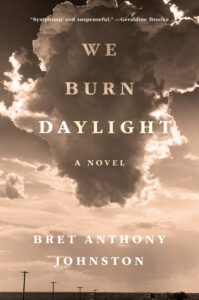
Bret Anthony Johnston, We Burn Daylight
Random House, July 30
That setting tells you straightaway what this one’s going to be about: the Branch Davidians, the Waco siege, and the ordinary lives caught up in a flash-point moment that will reverberate for a generation to come. We Burn Daylight uses the perspectives of two star-crossed lovers—the sheriff’s son and the unbelieving daughter of a cult member—to navigate the complexities of the showdown, for a moving and epic tale. I would expect no less from Johnston.–MO

